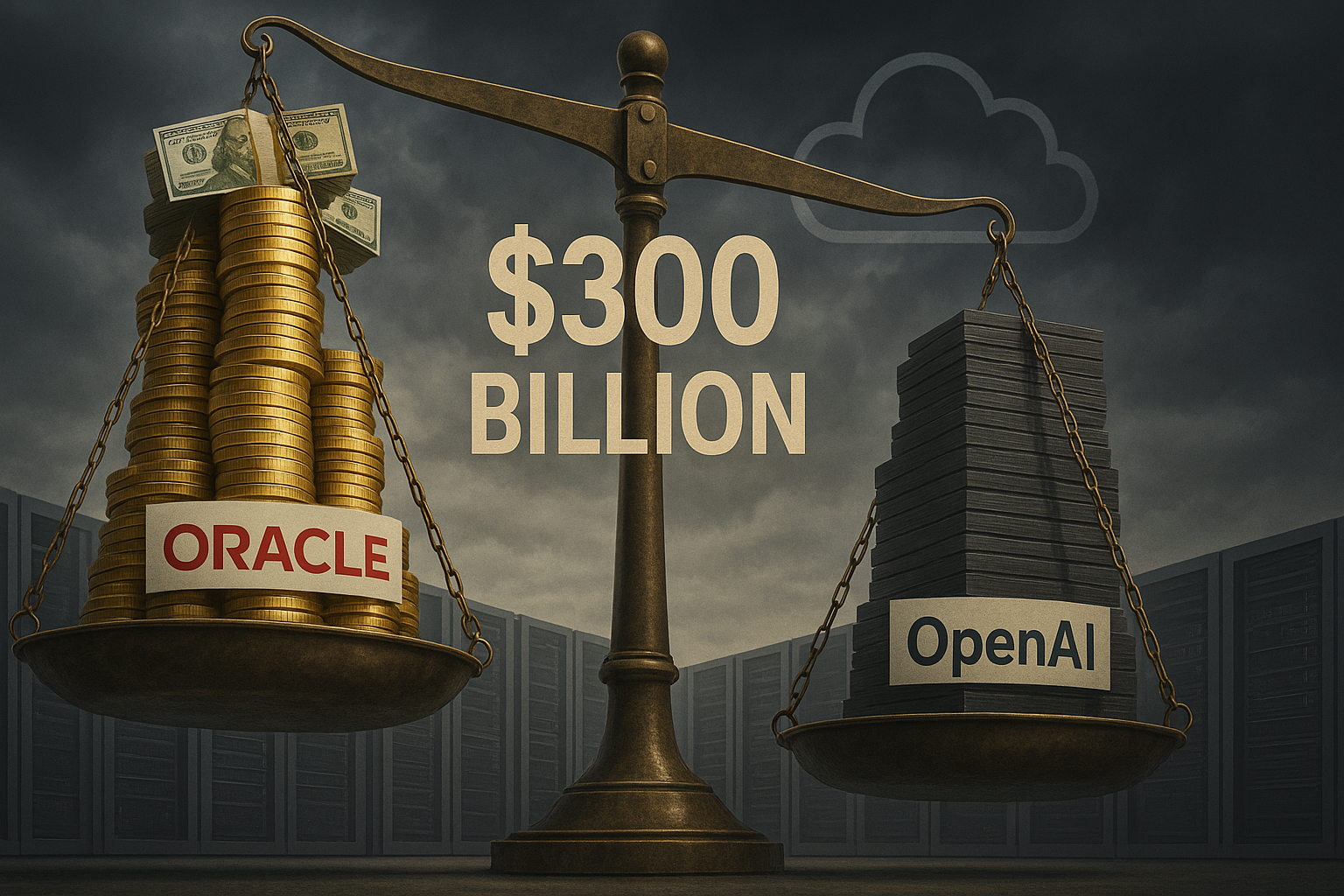In the pantheon of eye-watering tech deals, Oracle's $300 billion arrangement with OpenAI stands like a colossus. It's not just big—it's absurd, frankly.
When Oracle CEO Clay Magouyrk was asked if OpenAI could actually pay their staggering $60 billion annual cloud bill, he responded with a casual "Of course." Just like that. As if someone asked if he'd remembered to pick up milk on the way home, not whether a company that lost $5 billion last year could somehow generate twelve times that amount annually.
Let's get our heads around this figure. $300 billion over five years. That's roughly equivalent to Denmark's entire GDP. A Nordic nation's worth of cash, flowing from a company that's bleeding red ink to... run more chatbots?
I've covered tech financing since the dot-com bubble, and there's something fundamentally different happening here. This isn't just ambitious—it's financial magical thinking.
The justification? OpenAI has "almost a billion users" in under three years. Impressive growth, sure. But there's a massive sleight of hand at work.
Silicon Valley loves the "Scale Now, Monetize Eventually" playbook. It worked brilliantly for Facebook and Google. Build something addictive, get everyone hooked, then figure out how to make money. Easy peasy.
Except it's not. At all.
The problem—and it's a whopper—is that AI doesn't follow the same economic rules as social media or search. When Facebook adds another user scrolling through cat videos, the marginal cost is pennies. When OpenAI adds another user running complex inference operations? Ka-ching. The meters start running, and they run fast.
Look, what we're really seeing is Oracle bankrolling OpenAI's existence while positioning itself against cloud giants AWS, Azure, and Google. It's a $300 billion bet that someone, somehow, will figure out how to make generative AI profitable before the money runs out.
Meanwhile, Oracle's other CEO (yes, they have two—why have one executive when you could have twice the executive compensation?) Mike Sicilia mentioned they're integrating OpenAI into healthcare systems. Remember when Oracle bought Cerner for $28 billion? That seemed enormous at the time! Now it's a rounding error in this new financial landscape.
The healthcare angle makes sense, though. If there's anywhere AI economics might work, it's in an industry where small efficiency improvements translate to billions saved.
But I can't shake the feeling we're watching a high-stakes game of chicken. Oracle needs OpenAI to validate its cloud infrastructure. OpenAI needs Oracle's computing power. And both desperately need the market to believe that, eventually, this will all make financial sense.
What if it doesn't?
(I spoke with three venture capitalists who, off the record, expressed serious doubts about generative AI's current economic model, with one calling it "fundamentally unsustainable.")
This isn't just technological innovation—it's financial innovation. New structures designed to fund AI development whose economics remain... let's say "theoretical."
The gap between OpenAI's $5 billion loss and its $60 billion annual infrastructure commitment isn't meant to be filled by current revenue. It's filled with faith. Hope. The financial equivalent of breathing helium and hoping you'll float.
Will it work? Maybe! Those 800 million weekly active users Magouyrk mentioned aren't nothing. But the question isn't whether people will use AI—they obviously will—but whether anyone can build sustainable business models given the underlying costs.
I'm reminded of cloud computing's early days, when economics seemed fuzzy until scale created viable businesses. But even then, the path to profit was clearer than what we're seeing with generative AI.
The most revealing line from Magouyrk was his unshakable confidence: "Of course" OpenAI can pay. It's either supreme confidence or... well, the kind of statement you make when you're already in so deep there's no turning back.
Either way, we're watching a remarkable financial experiment unfold in real time. The stakes? Just the future of computing, hundreds of billions in capital, and whether AI becomes a sustainable business or history's most expensive technological dead end.
Oracle's stock is up, though. So there's that.
